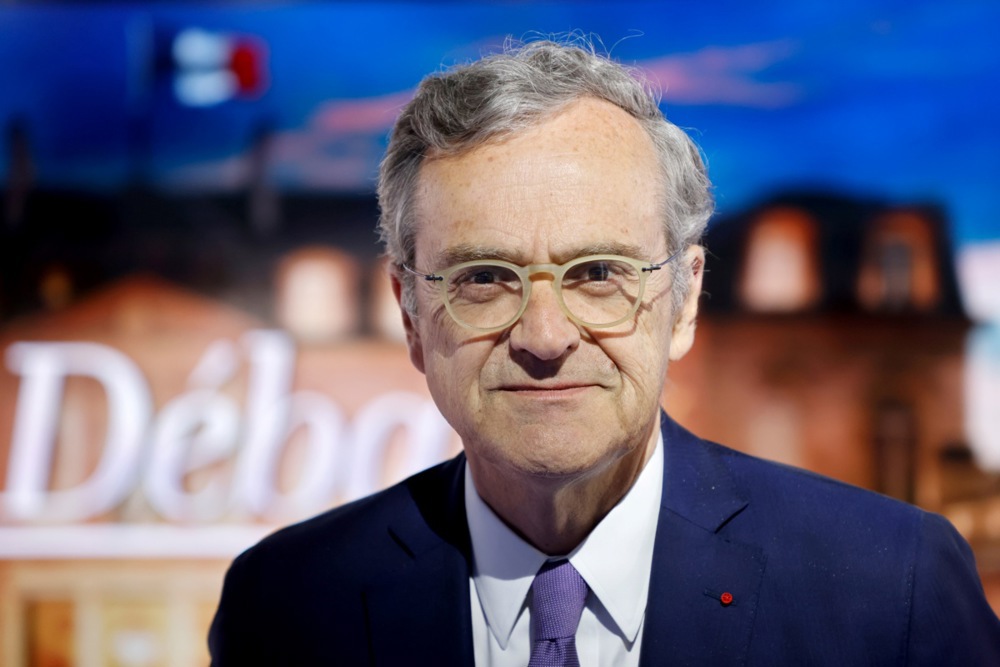France Télévisions, the public broadcaster, is in “a critical financial situation that requires without delay structural reforms that have been postponed until now”, the Court of Auditors has warned.
Nearly a decade after its last audit, the French Court of Auditors, presided over by the Socialist Pierre Moscovici, in a report published today, delivered a troubling assessment of France Télévisions, the country’s largest public broadcaster and a 100 per cent State-owned entity.
Nearly 9,000 people are employed at the public broadcaster, which encompasses France 2, France 3 and its regional branches, France 4, France 5, franceinfo, and the Overseas La Première network.
The report focuses on the economic and financial management challenges of the broadcaster and warns that its stability is in danger.
While the group has successfully reinforced its leadership in both linear and digital audiences, its financial health is deteriorating and its economic model is “unsustainable in the long term”, the auditors concluded.
They said structural reforms were needed “without delay”.
France Télévisions is facing rising personnel costs, the weight of digital investments and the adoption of a 2025 budget with a deficit of €40 million.
It operates on a €3 billion budget, 80 per cent of which comes from public funding.
While State contributions remained stable between 2017 and 2023, a decline of €161 million in public assistance was partially offset by increased advertising revenue and cost savings.
The 2024 budget saw a temporary boost from the Paris Olympics, pushing turnover to €3.3 billion.
Yet, the financial outlook is bleak. Between 2017 and 2024, the group accumulated a net deficit of €81 million, its cash flow has been severely eroded and its equity has plummeted from €294 million to €179 million.
Part of this came from the failure of the Salto platform in 2022, resulting in a €58 million loss. That was a subscription streaming service joint venture between France Télévisions, the TF1 Group and the Groupe M6, it was launched on October 20, 2020.
For 2025 the budget forecasts an operating loss of nearly €50 million and a net loss of €40 million. Without intervention, the Court warns, France Télévisions risks insolvency by the end of 2026.
Since 2017, France Télévisions has streamlined operations, boosting efficiency and producer leverage. There has been audience growth and modernisation but overall momentum since 2020 remains weak, leaving the group exposed in a digital-first market.
Between 2017 and 2023, around 1,000 jobs, or 10 per cent of the workforce, were cut but this only decreased personnel costs by 1.95 per cent, with the last three years, from 2021 to 2023, showing a rise.
Salaries at France Télévisions stand out as exceptionally high within both the public and private media sectors. In 2023, the average annual gross salary per employee reached €71,490, equivalent to nearly €6,000 per month, significantly surpassing the cultural sector average of €48,900 a year and even exceeding the private audiovisual sector’s average of €66,700 annually.
The pay structure is further marked by a notable concentration of high earners: Just 15.5 per cent of employees, approximately 1,370 individuals, account for over 28 per cent of the total wage bill, each earning more than €80,000 annually. This disparity raises questions about pay equity and the sustainability of the broadcaster’s financial model.
Some 31 executives earn more than €200,000 gross per year, or more than €16,600 per month. Five of them earn more than €300,000 per year.

A major obstacle to reform is the outdated collective agreement, frozen for 12 years, which classifies nearly 160 professions in rigid categories. This system limits employee versatility, slows skill development, and inflates costs — contributing to the widening operating deficit.
The 2019–2022 workforce restructuring plan stabilised the wage bill temporarily but non-permanent employment has surged, particularly in the France 3 network.
The Court emphasises that a complete renegotiation of the 2013 collective agreement is now “inevitable” to ensure the company’s sustainability.
This must be paired with a multi-year contract of objectives and means, providing a stable financial framework for management, it said.
There have been efforts to increase automation, the use of artificial intelligence and staff savings but unions are threatening strikes against this.
“Faced with the rapid and continuous change in uses and the risk of ageing of its audience, the group must consolidate its digital transformation through new investments,” the report said.
“This is the essential condition for maintaining its place in the audiovisual landscape and its public service mission.”
In a letter to the Court seen by AFP, France Télévisions’ chair Ernotte Cunci indicated in return that the organisation “subscribes to all the recommendations made” and “is already working on their implementation”.
The damning financial report comes as the public broadcaster is facing heightened criticism over a perceived left-wing bias after secret film recordings have shown French Socialist Party executives held discussions with prominent public service journalists regarding strategy for the 2027 national election and the municipal elections of 2026.
Politicians on the Right have been increasing their calls for a privatisation of the public broadcaster ever since.
Secret film recordings have shown French Socialist Party executives held discussions with prominent public service journalists regarding strategy for the 2027 national election and the municipal elections of 2026.
The recordings of apparent collusion caused an uproar in France,… pic.twitter.com/R4lTwKNXEZ
— Brussels Signal (@brusselssignal) September 8, 2025





